Farishta: Outrage over Pakistan child murder
- Published
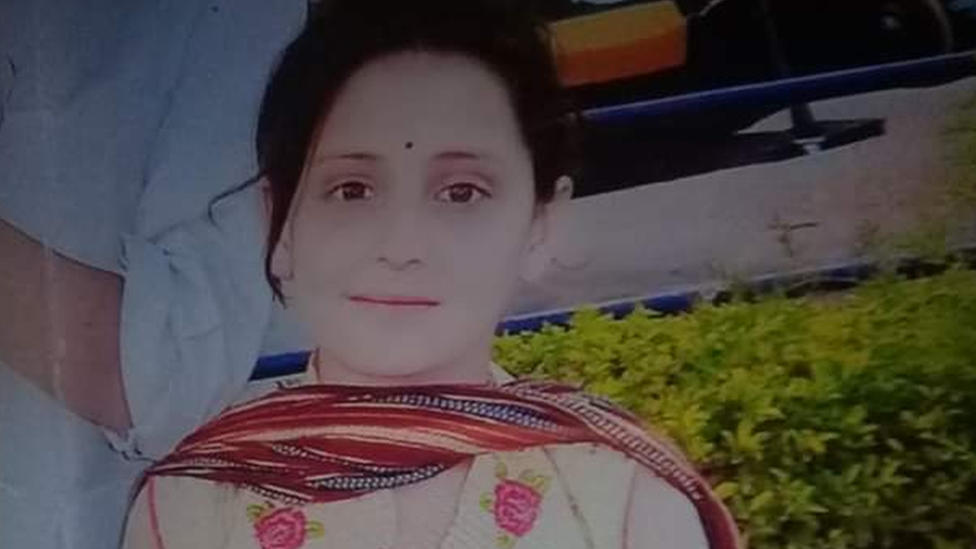
Farishta went missing on 15 May but police did not formally register a case until 19 May
The family of a 10-year-old Pakistani girl who was abducted and murdered have said they were ignored by police when they tried to report her missing.
They say police told them the child might have eloped, and they were made to carry out errands for officers
Farishta vanished in Islamabad on 15 May and a body believed to be hers was found on 20 May.
Police are investigating if she was raped and tortured, and protests are being held to demand justice.
The individual police officers involved deny wrongdoing.
Hundreds protested in central Islamabad on Tuesday calling for justice.
The case has been compared to the rape and murder of six-year-old Zainab Ansari in January 2018 - which sparked outrage and protests across the country. Calls for action are being made on social media, under the hashtag #JusticeFor Farishta.
What do the family say?
"The police didn't help us at all," Farishta's father Ghulam Nabi told the BBC at Tuesday's protest, which blocked a major intersection. "They would ask me to clean their office, to move their furniture, and to go get fruit for their Iftar [fast-breaking] dinner from the market.
"I was so distressed during those [four] days that I couldn't tell night from day."
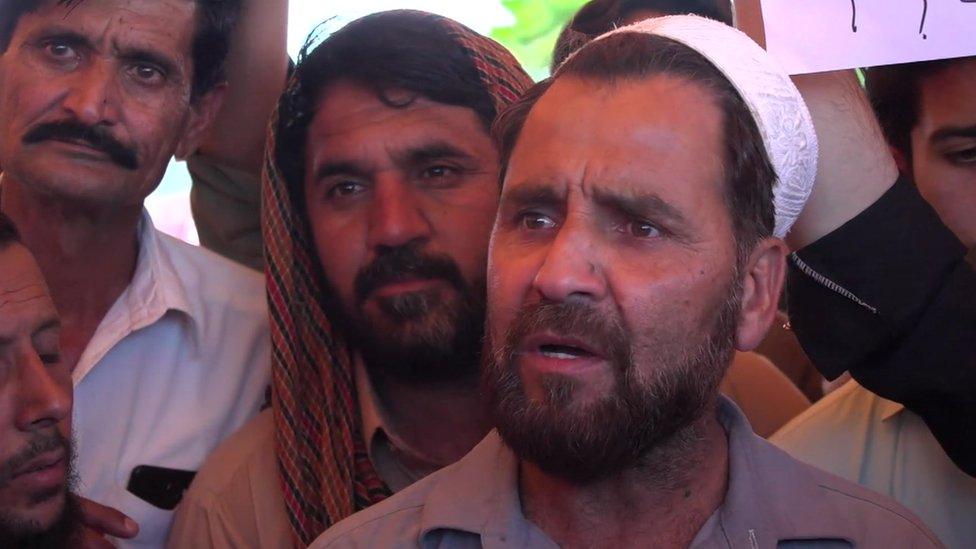
Farishta's father says police did not take the case seriously
On Wednesday, a case was formally registered against several police officials, alleging negligence. The chief of Shahzad Town police station, Muhammad Abbas Rana, has been suspended.
But he defended his and his officers' conduct, saying they had pursued the case and interviewed the family and neighbours on 16 May. He said the family were responsible for the delays in registering the case and that they did not follow it up properly. He denied they had been made to clean the police station.
Separately three people have been arrested in connection with Farishta's disappearance, external, Dawn newspaper reports.
A formal investigation was only launched on Sunday after a politician raised the case with the inspector general of Islamabad police.
The mutilated body of Farishta was found the following evening, triggering complaints that her life could have been saved had the police acted promptly.
Mr Nabi said that Mr Abbas Rana had initially refused to register a case - known as an FIR - telling him that his daughter might have "eloped with someone of her own free will". Mr Rana denied this.
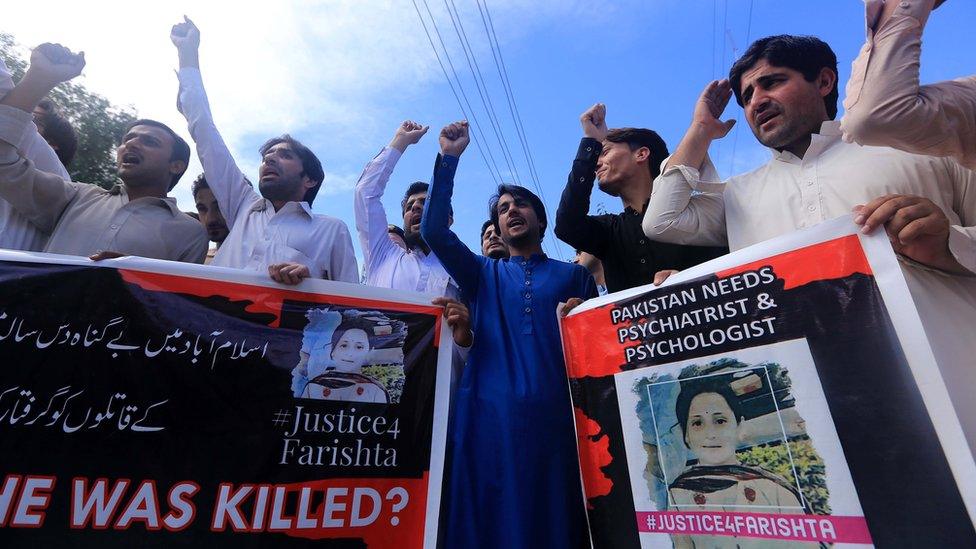
Farishta went missing on Wednesday 15 May after she went out to play in the eastern Islamabad neighbourhood where her family lives. She did not return as expected when the evening call for prayer began at the local mosque - signalling the breaking of the daily fast.
At that time, families gather for a meal known as Iftar - and Farishta's absence triggered a panic.
After scouring the neighbourhood and checking with friends, her family went to the police to file a missing person report.
The rape and murder of six-year-old Zainab sparked outrage in Pakistan.
On Monday evening, their worst fears were realised when Farishta's body was found. After being told that the doctor meant to conduct the autopsy was on leave - and so it would be delayed - the family decided to stage a sit-in at the hospital.
They were joined by leaders and activists from the Pashtun Protection Movement (PTM), a group which advocates for the rights of Pakistan's minority Pashtun community, to which Farishta's family belongs.
They come from Mohmand, in north-west Pakistan, and are among tens of thousands of families displaced by Pakistan's war on terror in that region.
"The dead body lying in this coffin is not just mine but everybody's daughter," said Mr Nabi.
Reporting by the BBC's Usman Zahid.
- Published17 October 2018
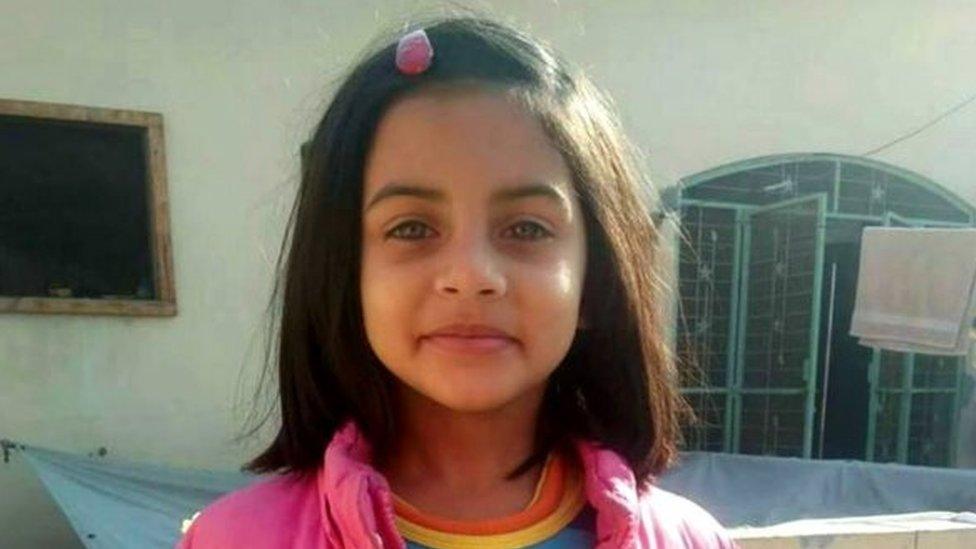
- Published27 January 2019
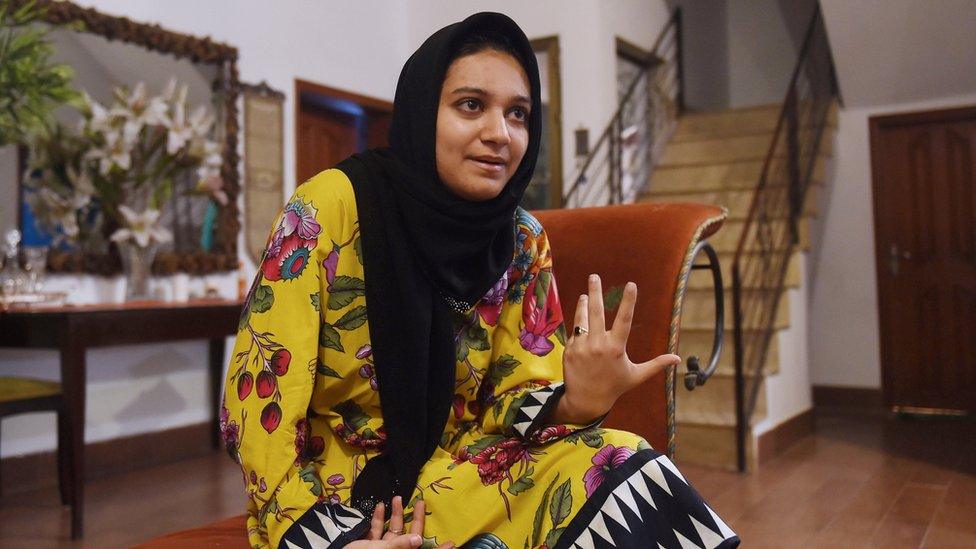
- Published15 May 2019
